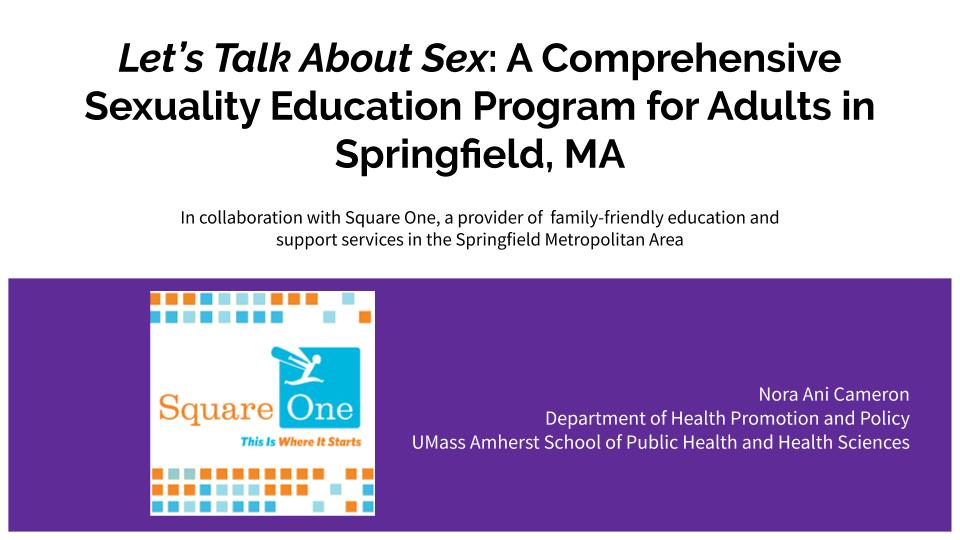Nora Ani Cameron

Nora’s research with Square One found a considerable need for a sexuality education program that addressed the structural inequalities and barriers Springfield community members faced in order to achieve sexual and reproductive freedom, especially amongst the low-income, Latinx community. This included issues of addiction, housing and food insecurity, trauma, state violence, disinvested education systems, and poverty in participants’ lives that they expressed shaped the way they view sexuality and sexuality education. Additionally, participants expressed great need and desire for an LGBTQ+ inclusive curriculum that addressed consent and intimate partner violence, harm prevention, pleasure and communication, and the best ways to talk with their child(ren) about sex, sexuality, and reproductive health. These findings highlight the lack of sex-positive sexuality education programming available, particularly to adults in marginalized communities, that acknowledge structural and social inequities and their impact on sexual and reproductive health. Creating a program that addresses these intersectional issues could serve as a way to empower adults to achieve sexual subjectivity and broader understandings of pleasure that help them to create open and supportive environments for the next generation to grow and learn from.